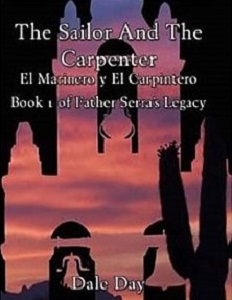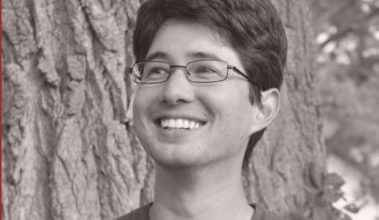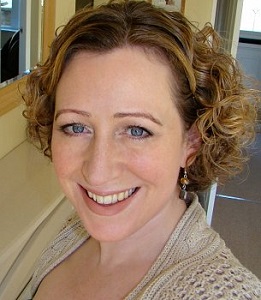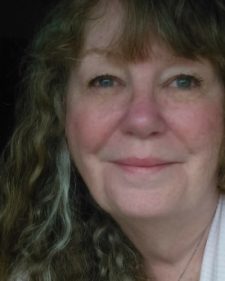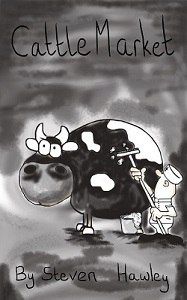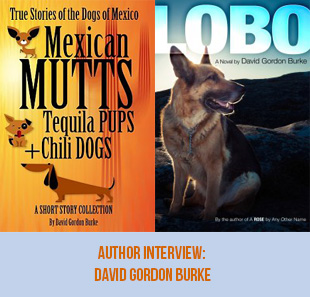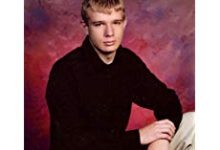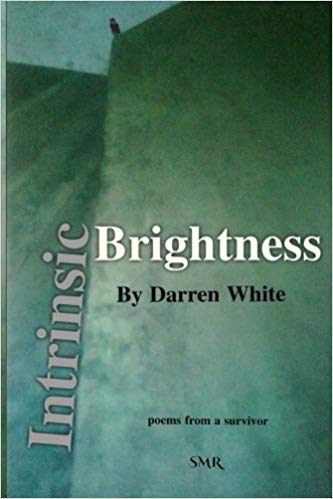Interview with John Bushore
Our next author interview is with John Bushore, aka WriterJohnB.
John Bushore is the author of 7 novels, the latest being “Wendigo,” in the Shadow Fletcher series. Dozens of his stories and poems, mostly science fiction and horror, have been published in magazines and anthologies. He is a 3-time winner of the independently judged James Award from Sam’s Dot Publishing and two of his stories are included in a university course in Gothic and horror literature, along with such authors as Joyce Carole Oates and Neil Gaiman.
He also writes for children as MonkeyJohn, the author of WHAT’S UNDER THE BED? (Sam’s Dot Publishing, 2003), and THE SPACEMONKEY ADVENTURES, which were featured in the quarterly magazine BEYOND CENTAURI and will soon be released as an anthology. His web site is www.johnbushore.com
John, please tell us a little about yourself
I’m a Vietnam vet (navy) and have been married for over 40 years. My wife and I are empty nesters, with a married son in Massachusetts and a daughter who is an army lieutenant and also a published author. I’ve always been an avid gardener, but have cut back since my back doesn’t like to bend over anymore. We live on 3 acres with horses, chickens, dogs and cats. I’ve been reading to grade school children as a pirate for a few years and have acquired a complete costume. Lately, I’ve been attending pirate festivals and such, giving in to my second childhood.
What inspired you to write your first book?
Twenty-some years ago, I got the notion there might be a thermal vent (like on the sea floor) in a cave somewhere and hypothesized that it could support life without any solar energy. I tried for a few years to write it, but didn’t have the skills. I joined a great writing group and learned the ropes. The result was “Friends in Dark Places,” which was published by Sam’s Dot Publishing in 2006. It’s science fiction with Paleo-Indians. I’ve since regained the rights and it’s available on line at Amazon.com
Although you’ve published several novels, for the purpose of this interview I’ve focused on “…and Remember that I Am a Man.” . What is the novel about?
The novel fleshes out the 1843 Narrative of the Life of Moses Grandy, a slave who fought non-violently for years to gain his freedom. This happened in the area where I live, near the Great Dismal Swamp of Virginia and North Carolina. I tried to highlight the social, economic religious, and cultural values circa 1800, when our country was new and still retained slavery, despite a constitution that said all men had inalienable rights.
What inspired you to write “…and Remember that I Am a Man.”?
I came across Grandy’s narrative while researching for a science fiction novel set in the Great Dismal Swamp and it fascinated me. I work for a school system, although not as a teacher, and thought this remarkable man’s story should be available to children in our area. I wanted our young people to know that black history isn’t something that happened somewhere else. The problem with Grandy’s original narrative is that it’s sketchy and also boring. Why would a kid want to read that? It would be more like a homework assignment. It needed to be told in a way that a young person would enjoy it and learn along the way.
Slavery limited our entire country, including New England, where churches claimed to be abolitionist, yet bought cotton and whiskey from the deep south. Slavery was encouraged by the cotton mills of the north. As I wrote the mid-grade novel I’d planned, I realized adults should know this story as well. It took six years of research and three years of writing, revising, and editing.
Did you work from an outline, or just write?
I never use outlines, I learn all the facts and just write. I do a lot of driving at work and I develop broad outlines of what I want to write, so that when I get in front of a computer (or a yellow legal pad, whatever) and the words usually flow onto the paper or screen. My first drafts are usually quite smooth, and I go back and revise earlier chapters as I write.
What were the challenges you experienced if any?
North Carolina University has a site called docsouth, where they try to digitalize all the old accounts, narratives, laws, court decisions, etc. I read nearly every one of them. It also helped that I live in an area where I can visit old plantations, slave quarters, etc. I also drove the back roads of Camden County, NC, looking for cemeteries, ruins, etc. It was intellectually rewarding when I found the site of Sawyer’s Ferry, where Moses toiled and suffered as a teen. One of the more challenging aspects was learning the history of the area from the descendants of slave-owners. I never let on that Moses Grandy had not painted a pretty picture of their ancestors, and that I would follow his lead.
Did you follow the more traditional publishing route or self-publish?
I tried the traditional route, but couldn’t find an agent who would represent historical fiction. Although some of them praised the writing and the novel, they just weren’t interested in representing it. Next I tried some of the small publishing houses that put out local history books. They publish so few books, however, that there was no place for mine. In the end, I self-published for the first time.
What were the biggest challenges faced by self-publishing and how did you overcome them?
I lived, ate, and breathed publishing. I scoured writing forums for hints and sources. I checked out different services and methodology. When I found Amazon’s createspace, it seemed perfect for me–hardcopies, and they could also publish me on Kindle. As far as challenges, I had to learn formatting, cover creation, etc. which took a lot of time.
How do you market your books?
I’ve had a lot of headaches in that area. I have a website and formerly had a facebook page. I also blogged, etc. I never saw a whit of difference in sales. I also sent three emails to a newspaper in the Mariana Islands, offering to buy advertising for my historical novel set in the Pacific, but they never replied. I also sent hardcopies to nearly all the public libraries on those islands, but the librarians never replied. For “…and Remember that I Am a Man.” I sent copies to several university history departments and never heard a word back. I’ve attended functions where black history is the topic (I even met and gave a copy to Douglas Wilder, the first black governor in America.) Very few sales resulted, although I learned even more about black history.
The only true success happened when I took my books to the Museum of the Albemarle gift shop. Since they specialized in local history, the museum staff was delighted and I’ve hosted power points on local slavery (for school children) the past two years during their “Civil War Days.”
What importance do you place on cover design?
Cover design is extremely important. If you have the money to invest in a good illustrator, by all means do so. Unfortunately, I’ve not had the resources in the past and designed my own covers. If your cover is appealing, there’s a much better chance that a potential reader will at least take time to read the back cover blurb and maybe the first page. I know how to write, but I don’t think I’m very good at covers and marketing.
Do you read reviews of your books? If so, do you pay any attention to them, or let them influence your writing?
I try not to read reviews now, but I used to. Bad reviews don’t discourage me, mostly because I’ve only had 3 of them. Two of them reviewed the book on only the back cover blurb and panned it, admitting they hadn’t purchased or read a sample of the novel. The other came from a judge with Amazon’s Breakthrough Novel Award, and it was for “Remember.” She basically said that I had no right to use Moses Grandy’s story, without ever mentioning the quality of the novel or the writing. All of the reviews of my actual books have been good.
John, you have now published 7 novels – which one is your favourite and why?
My favorite is “Necessary Evil,” set on the tiny island of Tinian in World War 2. The main character is Tedtaotao, an orphaned native boy who lives in a leper colony. When the Americans invade, he has to avoid both armies to survive. He notices suspicious activities and ends up stowing aboard a bomber on the mission that dropped the atomic bomb on Hiroshima. He struggles for the rest of his life with the question of who is good and who is evil. It’s the story of the Pacific war, from the neutral point of view of someone from another culture.
It’s also my favorite because it was a tribute to my father and my wife’s father, who were both Pacific veterans. Unfortunately, both died before publication, but there’s a copy of the book in my father’s casket. I also got to meet Frank Hilinski, who guarded the atomic bomb in 1945. He helped me with a few details. He read the book and loved it, but has since passed. It’s available at Amazon.com.
Is there a genre that you would not attempt to write?
No there’s not. I love a challenge and once wrote a romance. Yeah, it’s a spoof, but it’s still a darn good romance that challenges sexual mores. It’s been my best selling venture and I’ll write a sequel eventually.
Do personal experiences play a role in your writing, or is everything that happens in your stories the result of pure imagination?
I find it best to stick to imagination. The only time I’ve used my own experiences is in my present W.I.P., set in the Vietnam era. It’s very difficult to do this, since personal experiences don’t follow plot lines. I’ve decided to leave my personal history out of it.
What advice can you offer to new writers?
Advice for new writers? If you don’t love writing, don’t do it unless you can separate your ego from your craft. Write as a hobby and see what happens. It’s hard to accept rejections, bad reviews, poor sales, etc. Treat them as reasons to improve yourself and leave them behind.
The other thing I advise is to never put a first draft out there for others to read, no matter where you’re posting. I edit everything I write at least twice, even forum posts and e-mails. I’ll do that for this interview, too. How is anyone going to accept me as a good writer if I put out dreck of any sort?
Who is your favourite author and why?
There are two, both of them inspired me to try my hand at writing.
James A. Michener fascinated me with his thorough research and powers of description. He took me to parts of the world I could only imagine.
Robert A. Heinlein took me out of this world. He showed me the magic of imagination. Also, I loved his characterization, the people in his novels were fresh and exciting.
What projects are you working on at the present?
A Vietnam Novel, tentatively titled “The Summer of Love.” It’s set in Northern California and South Vietnam in 1968. It’s actually a love story, which is new for me.
If you were a castaway on a desert island and could choose five books to be a washed ashore with you, what would they be?
Five books I’ve never read before would be ideal, but I’ll stick to the question. Forget the classics, I’d take books to read for pleasure.
“Tales of the South Pacific” by James A. Michener because, while reading the book, I could imagine the two stellar screen musicals of the novel and also because I like the way it debunks racism, which I abhor.
“The Sands of the Kalahari” by William Mullvihill. It’s man against nature on the surface, but it’s truly man against himself. Forget the film, however, which didn’t do the book justice.
“The Lord of the Flies” by William Golding, for the same reason, but the film version was good.
“Treasure Island” by Robert Louis Stevenson. Just a ripping good adventure, good film, too.
“Dune” by Frank Herbert, the ultimate sci-fi novel for me, the film was abysmal.
As I listed these books, all from my youth, I realized I was subconsciously picking subjects which would parallel my castaway situation. I guess I’d enjoy the irony of it all.
Where can people buy “…and Remember that I Am a Man.”?
“…and Remember that I Am a Man.” Is available on my Amazon page, as well as my other works.
If you have any questions for John, about his books or writing in general, please do not hesitate to ask!

